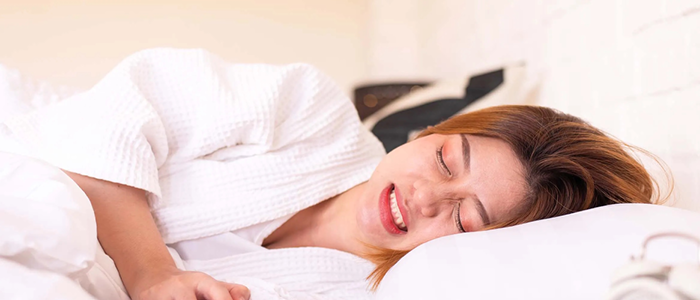Teeth grinding: Bruxism during sleep
Bruxism: teeth grinding during sleep
Teeth grinding during sleep, also known as 'bruxism,' is the uncontrolled sliding of the teeth against each other, and/or the clenching of the molars during sleep. Teeth grinding doesn't necessarily happen only at night, but controlling bruxism during sleep is impossible.

Symptoms of teeth grinding during sleep
Bruxism, or teeth grinding during sleep, can cause significant damage to teeth and lead to a poorer night's rest. It can result in physical and emotional complaints such as chronic fatigue, irritation, jaw pain, and insomnia. Tooth enamel can be worn down, and fractures may even occur. Many people also experience sensitivity or pain in their teeth as a result of bruxism.
Causes of teeth grinding during sleep
The causes of sleep bruxism are often difficult to pinpoint. Stress, anxiety, diet, medication use, and other factors that affect the nervous system can play a role. Teeth grinding during sleep occurs due to unconscious brain activity, and it takes time and attention to identify the causes. It's also important to watch your diet, as alcohol, sugar, tobacco, and other stimulants can contribute to unconscious teeth grinding.
Treatment
If you suffer from bruxism during sleep, it is advisable to consult a dentist. They can determine if there is damage to your teeth due to grinding and, if necessary, prescribe a custom-made mouthguard. The mouthguard, worn at night, prevents further damage to the teeth but does not address the underlying issue.
Treating bruxism often involves looking at ways to reduce potential stress factors, promote relaxation, and create a healthy sleep routine. Using a good mattress, going to bed on time, and practicing breathing exercises can help improve sleep patterns and increase relaxation, which may significantly reduce or even eliminate teeth grinding.
